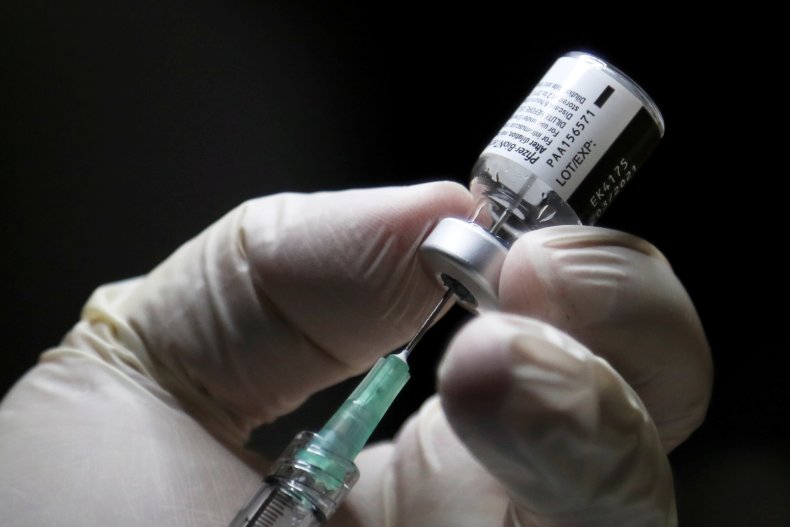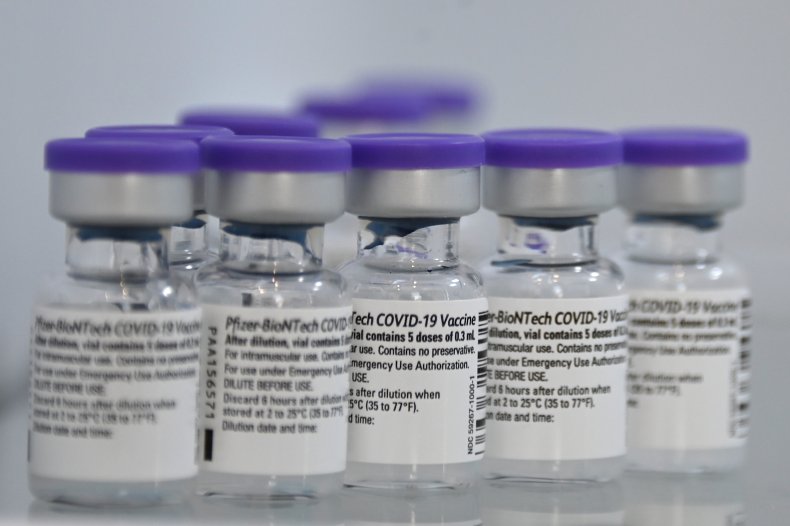When the U.S. government awarded over $10 billion in contracts and advance- purchase commitments to drug companies working on COVID-19 vaccine and treatments, it did not require the recipients of government money to agree to offer their products at fair prices or share intellectual property rights to enable faster production.
Now, two of the companies awarded those contracts—Pfizer and Johnson & Johnson—are trying to prevent shareholders from voting on resolutions to require the companies to disclose information about the impact of government funding on vaccine access.
The U.S. government has purchased 200 million doses of the Pfizer vaccine and 100 million doses of the Johnson & Johnson vaccines, for about $20 and $10 per dose, respectively.
The shareholder resolutions, filed by members of the Interfaith Center on Corporate Responsibility (ICCR), a shareholder activism organization, ask those two companies to inform their shareholders how "receipt of public financial support for development and manufacture of products for COVID-19 is being, or will be, taken into account when making decisions that affect access to such products, such as setting prices."
Similar resolutions were also filed at Eli Lilly, Gilead, Merck, and Regeneron.

Both Pfizer and Johnson & Johnson filed "no action requests" with the Securities and Exchange Commission (SEC) in December, asking the agency to rule that the companies can withhold the proposals from shareholders. Neither company responded to The Daily Poster requests for comment.
"Did you take government funding into account?"
In nearly identical filings prepared by the same lawyer, both Pfizer and Johnson & Johnson argued that the proposals attempt to "micromanage" the companies "by requesting an intricately detailed report."
Meg Jones-Monteiro, ICCR's health equity director, called the micromanaging claim "ludicrous."
The claim that investors are trying to "micromanage" the companies comes from an SEC precedent finding that certain "ordinary business operations" should not be subject to shareholder oversight. But Jones-Monteiro argues that the issue of vaccine pricing during pandemics doesn't fall into this category.
"Anything related to drug pricing has been established as a social policy issue," Jones-Monteiro told The Daily Poster, meaning it isn't just ordinary business that doesn't need any shareholder oversight.
She noted that the proposals don't ask about ordinary pricing decisions or ask for intricate details about pricing algorithms. "We are asking very generally: did you take government funding into account? And how did you take it into account?"
Oxfam, an ICCR member who filed the proposed resolution with Johnson & Johnson, wrote in a supporting statement that "JNJ stated publicly that it will distribute a COVID-19 vaccine on a "nonprofit" basis," adding: "JNJ has not clarified what 'nonprofit' means when the government funds a significant portion of the research and development cost."
"We're suspecting the vaccine's price is higher than the cost of production," Nicholas Lusiani, a senior advisor at Oxfam who works with the pharmaceutical industry in the U.S., told The Daily Poster. "We would like to see a drop down to the actual cost of production."
Johnson & Johnson subsidiary Janssen received $456 million for vaccine development last March, and then an additional $1 billion in August in exchange for providing 100 million doses to the federal government. The company expects to have the U.S. doses ready by April.
Pfizer received an advance purchase commitment from the federal government in July of about $2 billion for 100 million doses, and signed an agreement to provide an additional 100 million doses for the same amount in December.
Trinity Health, which filed the Pfizer resolution on behalf of the ICCR, wrote in an accompanying letter: "Although advance purchase commitments do not directly fund vaccine development, they reduce the risk associated with it."
BioNTech, the company Pfizer worked with to develop its COVID vaccine, also received funding from the German government.
Johnson & Johnson and Pfizer additionally argued in their no-action request that they have already "substantially implemented" the shareholder proposals by posting information on their websites about vaccine pricing.
That information isn't sufficient, says Jones-Monteiro. "What they're missing is the answer to the question we've asked, which is, how do you take government funding into account?" she said.
Intellectual property rights
While the government funded research and development of COVID vaccines and minimized risks with advance purchase commitments, the vaccines also contain wholly publicly developed technologies, raising questions about intellectual property rights.
In November, Public Citizen issued a report finding that the Pfizer and Johnson & Johnson vaccines were developed using a spike protein technology that had been discovered by scientists at the National Institute of Health. "Years of public investment have fueled the rapid advancement of COVID-19 vaccine candidates," the watchdog group wrote.
"Already, Janssen's agreements with [U.S. health officials] have been criticized for limiting the government's intellectual property rights," Oxfam wrote in its Johnson & Johnson letter, which it said "could place a chokehold on mass production commensurate with global need—increasing price, decreasing overall supply and preventing universal access."

Wealthy countries comprising 16 percent of the global population currently have over 60 percent of the world's vaccine doses. Sharing or suspending intellectual property rights would allow increased production of the vaccine, and make it easier for poorer countries to vaccinate their populations.
Under the current arrangement, countries whose populations participated in vaccine trials are facing vastly inadequate vaccine supplies. And the world's richest countries have been blocking a proposal at the World Trade Organization by India and South Africa to waive vaccine patents in order to allow more widespread production of the vaccine.
"You need enough doses to create global herd immunity, and right now, we don't have enough doses and they are controlled by rich countries, which creates this situation of vaccine imperialism," Lusiani, the Oxfam advisor, said.
Lusiani said the vaccine pricing issues pose potential risks to investors. "You can imagine the reputational risk of Johnson & Johnson receiving over a billion dollars in public money, and then raising the price once the pandemic is over to astronomical levels," he said, arguing it could lead investors to pull out of the company.
Then, there are larger risks to the economy created by limited vaccine access. "Investors want everybody to get the vaccine so that the economy can rebound as people go back to work," he said. The White House Council of Economic Advisors estimates that accelerating vaccination is worth $10 billion to the economy every day.
Jones-Monteiro expects the SEC to make a decision on the no-action requests this month.
Article From & Read More ( COVID-19 Vaccine Developers Ask the SEC to Help Keep the Secret of How They Set Prices - Newsweek )https://ift.tt/2NOo4IG
Business
Bagikan Berita Ini














0 Response to "COVID-19 Vaccine Developers Ask the SEC to Help Keep the Secret of How They Set Prices - Newsweek"
Post a Comment